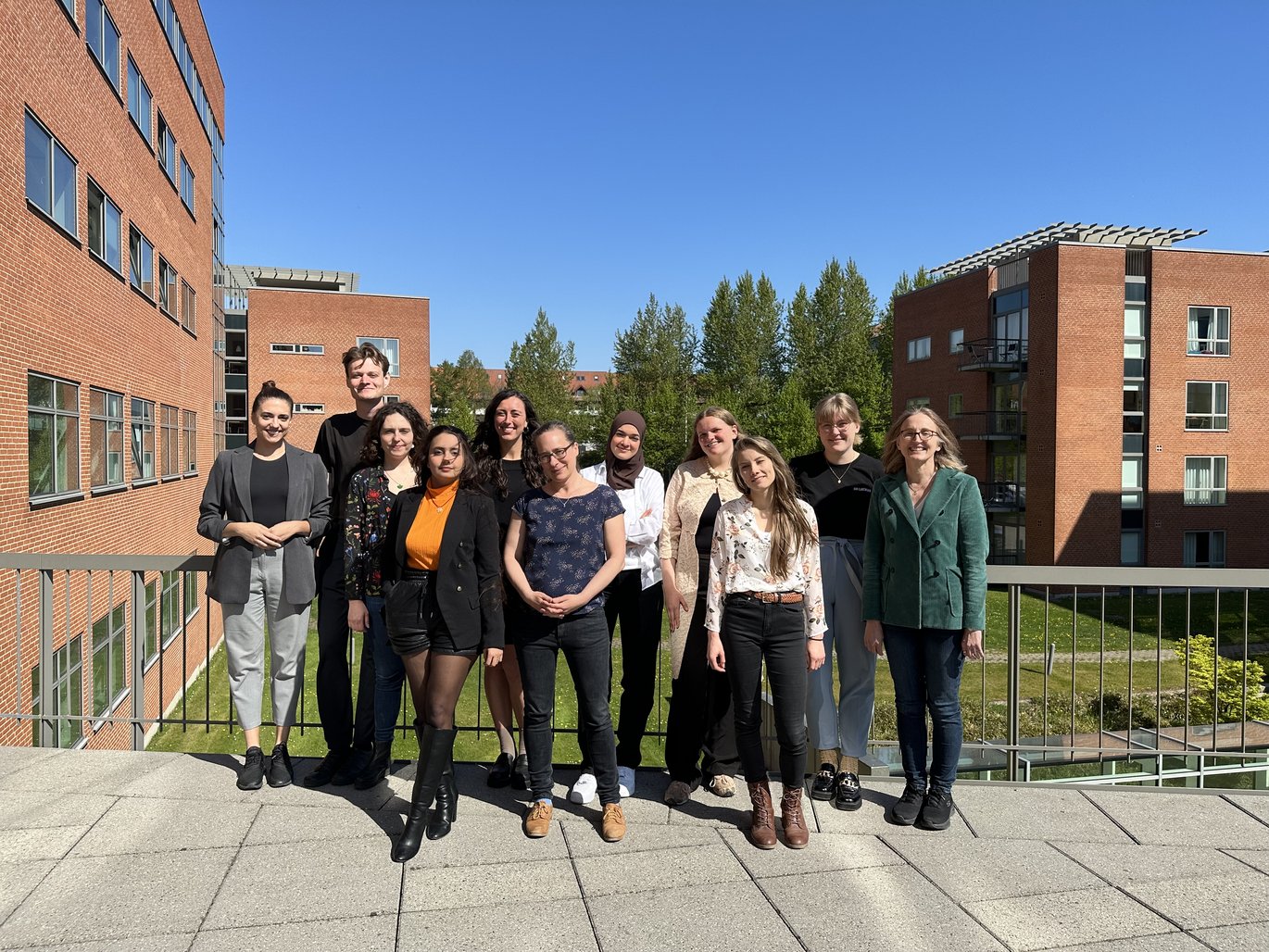How do we secure a sustainable future in uncertain times?
On 12 May, students from Denmark, Norway and Germany were gathered in Aarhus for the Circle U. workshop on ‘Risk, future narratives and sustainability’.

How can we make the UN’s Sustainable Development Goals more just? This was one of the questions addressed by students from the University of Oslo, Humboldt University of Berlin and Aarhus University who met in Aarhus on 12 May for the Circle U. workshop on ‘Risk, future narratives and sustainability’.
The students came from many different academic fields, including law, medicine, English, art history and agricultural sciences. The workshop approached questions of sustainability and justice from different angles.
Three glimpses from the workshop
Professor of Literature at Humboldt University, Anne Enderwitz, kicked off the workshop with a discussion of the solarpunk short story ‘Sunshine State’ and of literature’s ability to provide future narratives and inspire us on ways to create a society that can solve the climate crisis. The short story led participants to discuss the artificial divide between nature and culture in the discourse of climate change, and the need to rethink how people interact with non-human actors.
After the lunch break, Professor Ben Anderson from Durham University gave an inspiring keynote lecture via Zoom on ‘Anticipating Futures in an Age of Uncertainty’. He presented the idea that in this time of innumerable calls to action for countless crises, scenarios presenting catastrophic events are a way of bringing the future into the present to inspire action.
Finally, Associate Professor Antoinette Fage-Butler from Aarhus University gave an academic introduction to the concept of ‘justice’ and to the UN’s 17 Sustainable Development Goals. The students then discussed ways to improve the development goals by making them more just.
Antoinette Fage-Butler said that the students all approached the discussions with great enthusiasm, curiosity and creativity, and the plan is to publish the findings of the workshop and to build on the network’s common understandings in their future work.